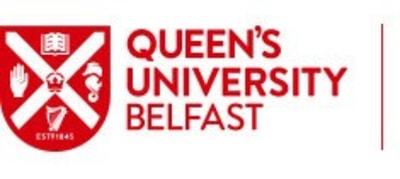
PhD in Ecosystem Biology and Sustainability
Queen's University of Belfast - Medical Faculty

Key Information
Campus location
Belfast, United Kingdom
Languages
English
Study format
On-Campus
Duration
3 years
Pace
Full time, Part time
Tuition fees
Request Info
Application deadline
Request Info
Earliest start date
Sep 2024
Introduction
The primary focus of the Ecology, Evolution, Behaviour and Environmental Economics research cluster is fundamental and applied aspects of ecology, environmental economics, conservation, aquaculture, animal behaviour, molecular taxonomy and molecular genetics, particularly involving links between these aspects. The cluster has a high level of research activity involving academic staff, Postdoctoral scientists, and postgraduate research students. The cluster has a high level of research activity involving academic staff, Postdoctoral scientists, and postgraduate research students.
Research strengths
- Animal behaviour/communication
- Biodiversity and ecosystem services
- Coastal and deep-water marine biology
- Ecological management
- Economics of water quality and sustainable catchment management
- Ecosystem ecology, modelling and mathematical biology
- Freshwater biology/fish biology
- Invasive species and their impact
- Molecular ecology, systematics, and phylogeography in algae, plants, invertebrates, fish, and mammals
- Sustainable aquaculture of shellfish and algae
- Urban land use, economics, and management
- Valuing biodiversity, agri-environment schemes and outdoor recreation including use of GIS and spatial econometrics
- Wildlife ecology, especially of birds and mammals
Special features
The group has a wide range of strong international and national links and it benefits from applied research centres such as Quercus, which specializes in conservation biology and biodiversity. The School is also closely involved in the University's Institute for a Sustainable World.
Students have access to modern laboratories and offices based in the Medical Biology Centre, close to the main Lanyon site. Students also have access to the University's Marine Laboratory, which is located in Portaferry, directly at the Narrows of Strangford Lough (the largest sea lough in the British Isles) and these facilities are used by resident staff and students as well as associated researchers from Queen's and international visitors.
Due to Northern Ireland's unique geology, mild climate, relatively long coastline and a long history of settled agriculture, we have a wide variety of interesting habitats, which provide a stimulating and challenging environment for those wishing to pursue research in these areas.
Admissions
Career Opportunities
Queen's postgraduates reap exceptional benefits. Unique initiatives, such as Degree Plus and Researcher Plus bolster our commitment to employability, while innovative leadership and executive programmes alongside sterling integration with business experts help our students gain key leadership positions both nationally and internationally.